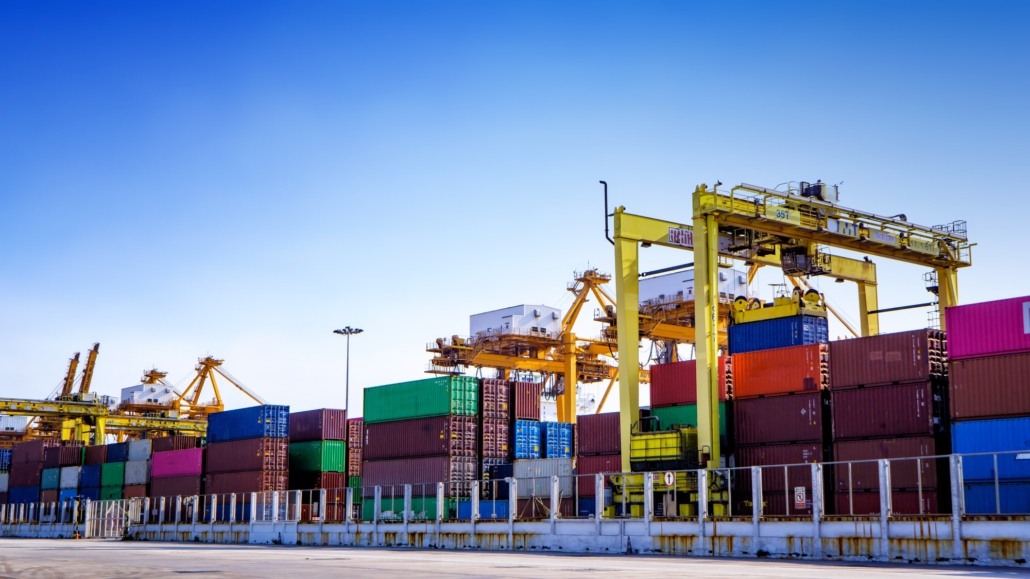LEGAL+ NEWS
The road haulage industry is subject to licensing for transports with motor vehicles with a gross vehicle weight of over 3.5 tons. The requirements to be met to obtain a road haulage license are outlined below.

Legal basis of the road haulage license
Most of the requirements follow directly from EU law, in particular Article 3 of Regulation (EC) No. 1071/2009. In Germany, Article 3 of the aforementioned regulation has been implemented in Section 3 of the Road Haulage Act (GüKG). § Section 3 GüKG reads:
Ҥ 3 Permit requirement
(1 ) Commercial road haulage is subject to authorization, unless otherwise provided for in directly applicable European Community law.
(2) The permit shall be issued to an entrepreneur whose company has its registered office in the
(EC) No 1071/2009 of the European Parliament and of the Council of 21 October 2009 establishing common rules concerning the conditions to be complied with to pursue the occupation of road transport operator and repealing Directive 96/26/EC (OJ L 300, 14.11.2009, p. 51).
requirementsfor practicing the profession of road transport operator .
(…)”
Accordingly, the following requirements, which result directly from Art. 3 of Regulation (EC) No. 1071/2009, must be met:
- Actual and permanent establishment in the EU
- Reliability
- Adequate financial capacity
- Professional suitability
The required branch office must be located in Germany (Section 3 (2) sentence 1 GüKG). The person responsible for road haulage in the company, referred to as the transport manager since 4.12.2011, must meet the requirements of reliability and professional suitability on a permanent basis.
The above-mentioned requirements must always be substantiated by suitable evidence when applying in accordance with § 3 GüKG. The required application form can be downloaded from the websites of various competent administrative authorities.
How the requirements are to be fulfilled in detail and what applies to the individual permit, hearing and withdrawal/revocation procedures is regulated in the Professional Access Ordinance for Road Haulage (GBZugV) and in the corresponding administrative regulation (GüKVwV).
Branch office
A branch office in Germany is required.
The requirements to be met are set out in Art. 5 of Regulation (EC) No. 1071/2009:
“In order to comply with the requirement laid down in Article 3(1)(a), an undertaking in the Member State concerned shall
a)
have an establishment in the said Member State with premises where its main company documents are kept, in particular its accounting documents, personnel management documents, documents containing data on driving times and rest periods and any other documents to which the competent authority must have access in order to verify compliance with the conditions laid down in this Regulation. Member States may require that establishments on their territory also keep other documents available on their premises at all times;
b)
have at his disposal, after obtaining the registration, one or more vehicles which are his property or which are in his possession by virtue of any other right, such as a hire-purchase or hire or leasing contract, and which are registered in the Member State concerned or otherwise put into service in accordance with the legislation of that Member State;
c)
actually and permanently carry out its activities in respect of the vehicles referred to in point (b) at a permanent establishment situated in the Member State concerned, by means of the necessary administrative equipment and the appropriate technical equipment and facilities.”
The branch must have premises at the relevant location for continuous and permanent participation in business life and for the storage of business documents, carry out an activity as a road haulage company with the location and scheduling of vehicles and employed personnel, by persons authorized to act independently and familiar with the business transactions.
The branch must therefore meet the following requirements:
- own premises
- The storage there of essential accounting documents, personnel administration documents, documents containing data on driving and rest times, to which the authorities must have access as part of their supervisory duties.
- Operation of vehicles via this branch. These can also be rented or leased.
- Actual performance of road haulage activities at the place of establishment
Important:
Office space for file storage and occasional staff meetings without recognizable indications of regular use by employees is not sufficient (Administrative Court Aachen, judgment of 11.2.2016 – 2 L 901/15).
In the event of a dispute, the courts examine very strictly whether the external circumstances permit the assumption that it is actually a branch in the sense described above.
The Augsburg Administrative Court (judgment of 27.03.2012 – Au 3 K 11.1212), for example, examined the local/building law circumstances in detail in a case examined by this court and rejected the existence of a (branch) establishment on the following grounds, among others:
“(…) Frequent access to the alleged location of the branch office by truck is also prohibited for reasons of building law. According to the photographs presented at the hearing, the building in which the apartment of the deputy managing director of the plaintiff is located is in a general residential area within the meaning of Section 4 of the Building Utilization Ordinance. Even non-disturbing commercial enterprises are only permitted there as an exception. If the apartment was regularly accessed by trucks, the use as a Branch office inadmissible. (…)
All this only allows the conclusion that the plaintiff is only interested in formally having a branch in Germany in order to avoid restrictions in the transport business, … was only chosen because the managing director of the plaintiff owns an apartment there and thus no business premises had to be rented.”
After all, it is strongly recommended,
- actually rent premises that legally and actually permit a road haulage company according to the local conditions,
- to equip the premises technically in such a way that all administrative tasks of a road haulage company can be carried out there,
- register at least one truck via the branch office
- to carry out transportation from the place of establishment, at least to a certain extent.
Reliability
Section 2 of the GBZugV provides information on the required personal reliability. It states:
(1) The operator and the transport manager within the meaning of Article 4 of Regulation (EC) No 1071/2009 of the European Parliament and of the Council of 21 October 2009 establishing common rules concerning the conditions to be complied with to pursue the occupation of road transport operator and repealing Council Directive 96/26/EC (OJ L 300, 14.11.2009, p. 51) are reliable within the meaning of Article 6 of Regulation (EC) No 1071/2009 if there are no facts indicating that
- violate statutory provisions in the management of the company or
- the operation of the company harms or endangers the general public
will.
(2) As a rule, the operator and the transport manager shall not have the requisite good repute if they have been convicted of a serious infringement of Community provisions within the meaning of Annex IV to Regulation (EC) No 1071/2009
- have been convicted by final judgment or
- a fine imposed on them has become incontestable.
(3) In addition, the operator and the transport manager may be unreliable in particular if they have been convicted by final judgment or if a fine imposed on them has become incontestable
for a serious infringement of Community rules within the meaning of point (b) of the third subparagraph of Article 6(1) of Regulation (EC) No 1071/2009 in one or more Member States of the European Union,
due to a serious violation of criminal law or
for a serious breach of
a) provisions of the Road Haulage Act or the ordinances based on this Act,
b) obligations under labor or social law,
c) regulations issued in the interests of traffic, operational or food safety, in particular against the provisions of the Road Traffic Act, the Road Traffic Regulations or the Road Traffic Licensing Regulations,
d) the tax obligations arising from entrepreneurial activity,
e) § 1 of the Compulsory Insurance Act of April 5, 1965 (BGBl. I p. 213), as amended,
f) environmental protection regulations, in particular waste and immission control legislation or against
g) provisions of commercial and insolvency law.
It is therefore necessary in particular
- practicing the profession in accordance with the law and
- the absence of final convictions for significant violations of national and Community law.
The bottom line is that there is no evidence that the management of the company disregards the applicable (national and European) regulations or that the general public is harmed or endangered.
Reliability is called into question, for example, in the case of the following infringements of relevant Community law (see list in Annex IV of Regulation (EC) 1071/2009):
- Exceeding the maximum daily driving times by 50 % or more, the 6-day or 14-day maximum driving times by 25 % or more,
- lack of tachographs or speed limiters,
- Use of devices for fraudulent
- Alteration or falsification of record sheets and downloaded data,
- Driving vehicles that do not comply with the regulations and vehicles with serious defects, e.g. brakes and steering,
- prohibited storage or prohibited transportation of dangerous goods with such a risk to human life and the environment that the vehicle is immobilized,
- Transport of persons and goods without a valid driving license or by a company without a Community license
- Use of counterfeit driver cards
Financial performance
According to Section 3 GBZugV, the entrepreneur is deemed to be financially capable if he fulfills the requirements of Art. 7 of Regulation (EC) 1071/2009. The national provision refers directly to the Community regulation, which contains the corresponding definition. Paragraph 1 states:
“To meet the requirement of Article 3(1)(c), a company must be able to meet its financial obligations at all times during the financial year. To this end, the undertaking shall demonstrate, on the basis of annual accounts audited by an auditor or a duly accredited person, that it has at least EUR 9000 in equity and reserves each year for one vehicle used and EUR 5000 for each additional vehicle used.”
The current value of the vehicles used cannot be taken into account when calculating equity, as they are operating resources (Hamburg OVG 16.9.2012 – 3 Bs 5/12).
When submitting the first application, the required equity must be proven by means of a corresponding equity certificate, e.g. from a tax advisor. In addition, a so-called clearance certificate from the tax office may be required despite the absence of a corresponding legal requirement.
Professional suitability
According to Section 4 GBZugV in conjunction with Art. Art. 8 of Regulation (EC) 1071/2009 if the so-called “transport manager” has the knowledge to manage a road haulage company in the areas listed in Annex I Part 1 of Regulation (EC) 1071/2009.
The subjects covered are civil law, commercial law, social law, tax law, commercial and financial management, access to the market, technical standards, technical operation and road safety, all of which relate to road haulage.
Proof must be provided in the form of an oral examination before an examination board of the relevant Chamber of Industry and Commerce.
According to current law, final examinations such as forwarding agent, road and rail transport clerk, transport specialist and in various courses of study as Diplom-Betriebswirt are regarded as equivalent (cf. in detail Annex 4 to the old version of the GBZugV).


Important:
Practitioners can also prove their professional aptitude through at least ten years of uninterrupted managerial activity in companies that operate road haulage in the EU (Section 8 (1) GBZugV).
Traffic rider
The requirements of reliability and professional suitability described above must be met by the so-called traffic manager.
According to Art. 2 No. 5 of Regulation (EC) No. 1071/2009, a transport manager is “a natural person employed by an undertaking or, if that undertaking is a natural person, that person himself or, where appropriate, another natural person contractually appointed by that undertaking, who effectively and continuously directs the transport activities of that undertaking.”
According to Art. 4 Para. 1 of Regulation (EC) No. 1071/2009, the appointment of a transport manager within the meaning of Art. 2 No. 5 of Regulation (EC) No. 1071/2009 is mandatory in order to obtain a permit for commercial road haulage.
A “traffic manager” can only be someone who
- actually and permanently manages the company’s transportation activities,
- has a genuine connection with the company, for example as an employee, director, owner or shareholder, or manages the administrative affairs of the company or, if the company is a natural person, is that person himself or herself, and
- has their permanent residence in the Community.
Important:
If required, it is possible to contractually appoint a third party who is not employed by the company as a transport manager.
This results from Art. 4 Para. 2 of Regulation (EC) No. 1071/2009, which also lists the requirements to be met. It is particularly important that the content of the duties assumed as a transport manager are precisely regulated in the required transport manager contract. In addition, the contracted person may not be employed as a transport manager in more than 4 companies.


LATEST ARTICLES

Delegation of managerial duties
LEGAL+ NEWS Compliance guide: Delegation of directors’ duties using the

Labeling of advertising in social media
LEGAL+ NEWS Labeling influencer advertising with Anglicisms in social media

Karlsruhe Regional Court considers unpaid posts in the Pamela Reif case to be subject to labeling – ruling fundamentally contradicts the ruling of KG Berlin from 8.1.2019 (Ref. 5 U 83/18)
LEGAL+ NEWS The Regional Court of Karlsruhe (judgment of 21.3.2019,
CONTACT

+49 (40) 57199 74 80
+49 (170) 1203 74 0
Neuer Wall 61 D-20354 Hamburg
kontakt@legal-plus.eu
Benefit from my active network!
I look forward to our networking.
This post is also available in: DE

